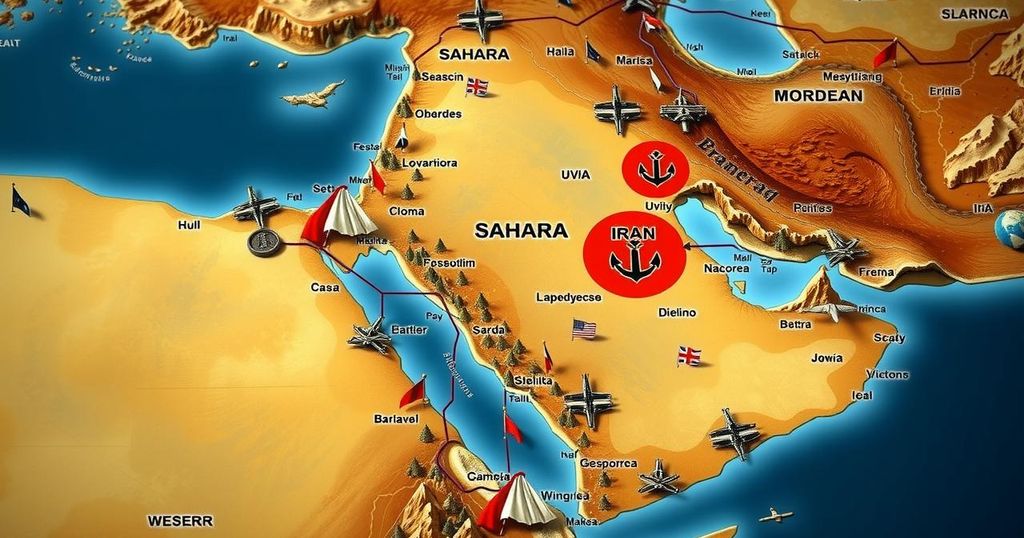Expert analysis on how President Trump’s return could strengthen U.S.-Morocco relations, particularly in the context of Western Sahara. It addresses Morocco’s hopes for a firm U.S. stance on its claims against Iranian-backed groups while considering regional dynamics and public sentiment towards Israel.
The election of President Donald Trump heralds a positive shift in U.S.-Morocco relations, particularly concerning the contentious issue of Western Sahara. In his previous administration, Trump had formally recognized Morocco’s sovereignty over the territory, a decision that came in the context of Morocco’s normalization of relations with Israel. Morocco now seeks to secure further U.S. support under Trump while managing changing domestic sentiments regarding its relations with Israel.
The Biden administration’s cautious approach toward Morocco has presented challenges, as it balances historical ties against the necessity of maintaining positive relations with Algeria, which opposes Morocco’s claims over Western Sahara. The ongoing Western Sahara dispute, exacerbated by Iran’s backing of the Polisario Front, poses security risks that warrant renewed U.S. support for Morocco’s claims.
Moroccan officials hope the incoming Trump administration will affirm Morocco’s territorial claims without ambiguity, which they perceive has characterized U.S. policy under Biden. This includes potentially reviving discussions for U.S. investments and diplomatic initiatives aimed at stabilizing the region and countering Iranian influence.
Contrastingly, the current geopolitical climate, particularly in light of the conflict in Gaza, has stirred public sentiment in Morocco against normalization with Israel. Despite this, Moroccan leadership views partnerships with Israel as strategic alliances against Iranian proxies, leading to various military and intelligence collaborations.
Tensions in Western Sahara are escalating alongside Morocco’s diplomatic maneuvers. The resurgence of confrontations following the restoration of ties with Israel and increased military actions by the Polisario Front signal the urgency for a cohesive U.S.-Morocco strategy. The precarious balance of regional stability hinges on addressing the threat posed by Iranian proxies and fostering economic collaboration through initiatives like the Dakhla harbor project.
The realignment of U.S. allies, including Spain and France, highlights a collective necessity to mitigate the influence of Iranian-backed militias. The next U.S. administration has a significant opportunity to engage directly with Morocco and support its initiative for regional autonomy plans while confronting the challenges posed by Algeria’s alignment with Iran.
In conclusion, reinforcing relations with Morocco under President Trump’s anticipated administration presents a pivotal opportunity to stabilize the Western Sahara situation, counter border threats from Iranian-backed groups, and leverage Morocco’s strategic position to boost U.S. economic interests in the region. The implications of this engagement are crucial not only for Morocco but for broader U.S. foreign policy objectives in North Africa and the Sahel.
The article discusses the strategic importance of U.S.-Morocco relations, particularly regarding the disputed territory of Western Sahara. Following Donald Trump’s previous recognition of Moroccan sovereignty over this territory, Morocco is keen to continue enhancing ties under his renewed presidency. The piece highlights the shifting dynamics due to the Biden administration’s mixed signals towards U.S.-Morocco partnerships while also addressing the escalating Iranian influence in the region, particularly through support for the Polisario Front.
The renewed focus on U.S.-Morocco ties under President Trump could provide a decisive avenue to stabilize the Western Sahara conflict and counteract Iranian influence in North Africa. The opportunity exists for the U.S. to bolster its relationship with Morocco through economic and security cooperation, while confronting broader geopolitical challenges in the Sahel region. As allies realign, the U.S. has a chance to lead efforts toward resolution and cooperation in this longstanding conflict.
Original Source: www.atlanticcouncil.org






